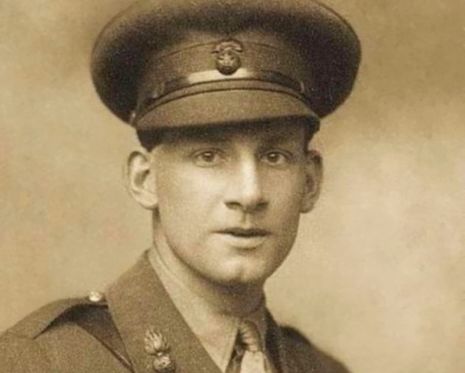Benediction: a stark reminder that, sometimes, salvation is impossible for even the most heroic
Sassoon’s poetry is seamlessly blended with Davies’ experienced direction, and the challenge of condensing a life of such complexity into a single feature is profoundly met

Benediction leaves you feeling a little less blessed and a bit more disillusioned. Not because of any absence of quality, but rather because it serves as a stark reminder that, sometimes, salvation is impossible for even the most heroic of us. Terence Davies directs this original screenplay, which is based on the experiences of war poet Siegfried Sassoon. Jack Lowden stars and depicts the poet as sharp but scarred; his performance is astounding and, in combination with such a thoughtful and personal screenplay, creates a portrait of the poet so vivid it seems tangible.
Presenting as a biopic, Benediction resists the genre’s traditional chronology, disordering events in Sassoon’s life and often leaving large temporal gaps. Add to this an inclusion of archive footage, as well as regular voiceovers of poetry reading, and the film starts in a slightly confused way. However, this patchwork, or montage, approach might just be the best way to present Sassoon’s tumultuous life.
Lowden captures the innocence of Sassoon and Wilfred Owens’s friendship with devastating impact
The more subtle, understated scenes offer us the most impact. Lowden captures the innocence of Sassoon and Wilfred Owens’s friendship with devastating impact, and it haunts us for the rest of the film. Playing Dr. Rivers, Ben Daniels offers an extremely affectionate portrait of an older gay man. The way he and Sassoon are able to discuss sexuality through innuendo requires a certain intergenerational level of understanding and trust.
Whilst Davies has been drawn to poets before (having directed A Quiet Passion), his identification with Sassoon as a gay artist is pointed. Davies is aware that Sassoon’s story — being able to engage in homosexual relationships and acts — was a signifier of his social position. Describing them as 'cushioned and protected by their privilege’, Davies reflected on how the level of intimacy he was able to achieve was, by our standards, limited but indeed privileged.
The film also makes a point of fleshing out several of his lovers, who assert their identities just as strongly. Jeremy Irvine offers a scathing and callous version of Ivor Novello. At times, his performance, as well as that of Calam Lynch as Stephen Tennant, can appear caricaturish, but his attitude is a constant reminder that not every desired influence in our life is positive. Lowden treats Sassoon’s relationships in this film with the same emotional intensity as he does writing, or speaking about, the war, and he creates a thematic triptych for the viewer.
Peter Capaldi, playing an elderly Sassoon, embodies the poet and Davies’ twinned struggle with Catholicism and conversion. The film opens with Capaldi and closes with Lowden. Having Capaldi preface the film and appear sporadically, often at unexpected times, is powerful, showing the ever-present shadows of the past and its impact on the future. However, at points, the sometimes bizarre splicing of footage remained arresting. A point could be made that it is intended as another comment on time and disorder — but I don’t think it quite made its mark.
Benediction is enthralling, Sassoon’s poetry is seamlessly blended with Davies’ experienced direction, and the performances are stellar. It would have been nice to have some of the larger temporal gaps filled in to avoid confusion, but the challenge of condensing a life of such complexity into a single feature is profoundly met.
 News / Uni Scout and Guide Club affirms trans inclusion 12 December 2025
News / Uni Scout and Guide Club affirms trans inclusion 12 December 2025 News / Cambridge Vet School gets lifeline year to stay accredited28 November 2025
News / Cambridge Vet School gets lifeline year to stay accredited28 November 2025 News / Cambridge study finds students learn better with notes than AI13 December 2025
News / Cambridge study finds students learn better with notes than AI13 December 2025 Science / Did your ex trip on King’s Parade? The science behind the ‘ick’12 December 2025
Science / Did your ex trip on King’s Parade? The science behind the ‘ick’12 December 2025 News / Pembroke to convert listed office building into accom9 December 2025
News / Pembroke to convert listed office building into accom9 December 2025









